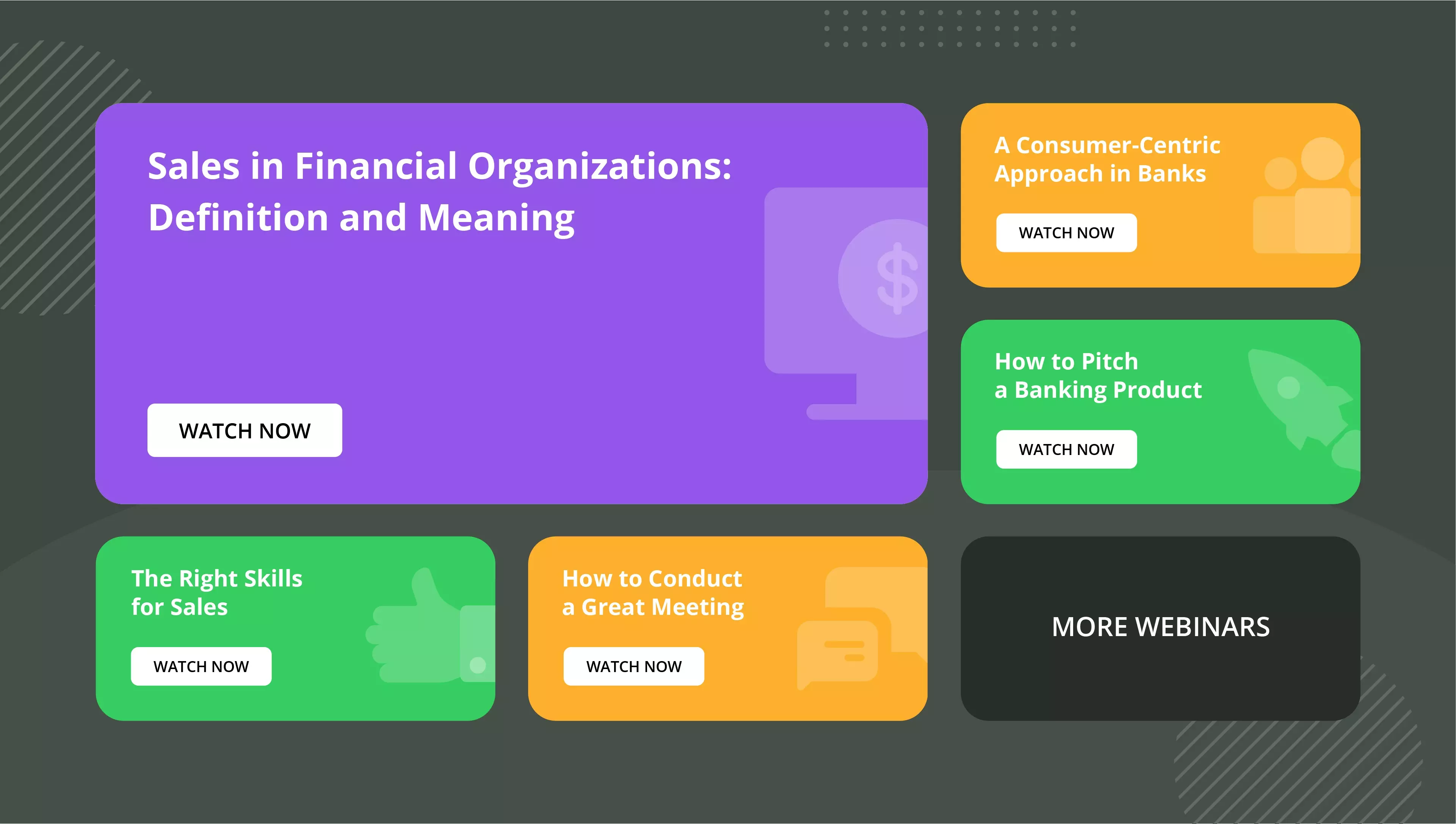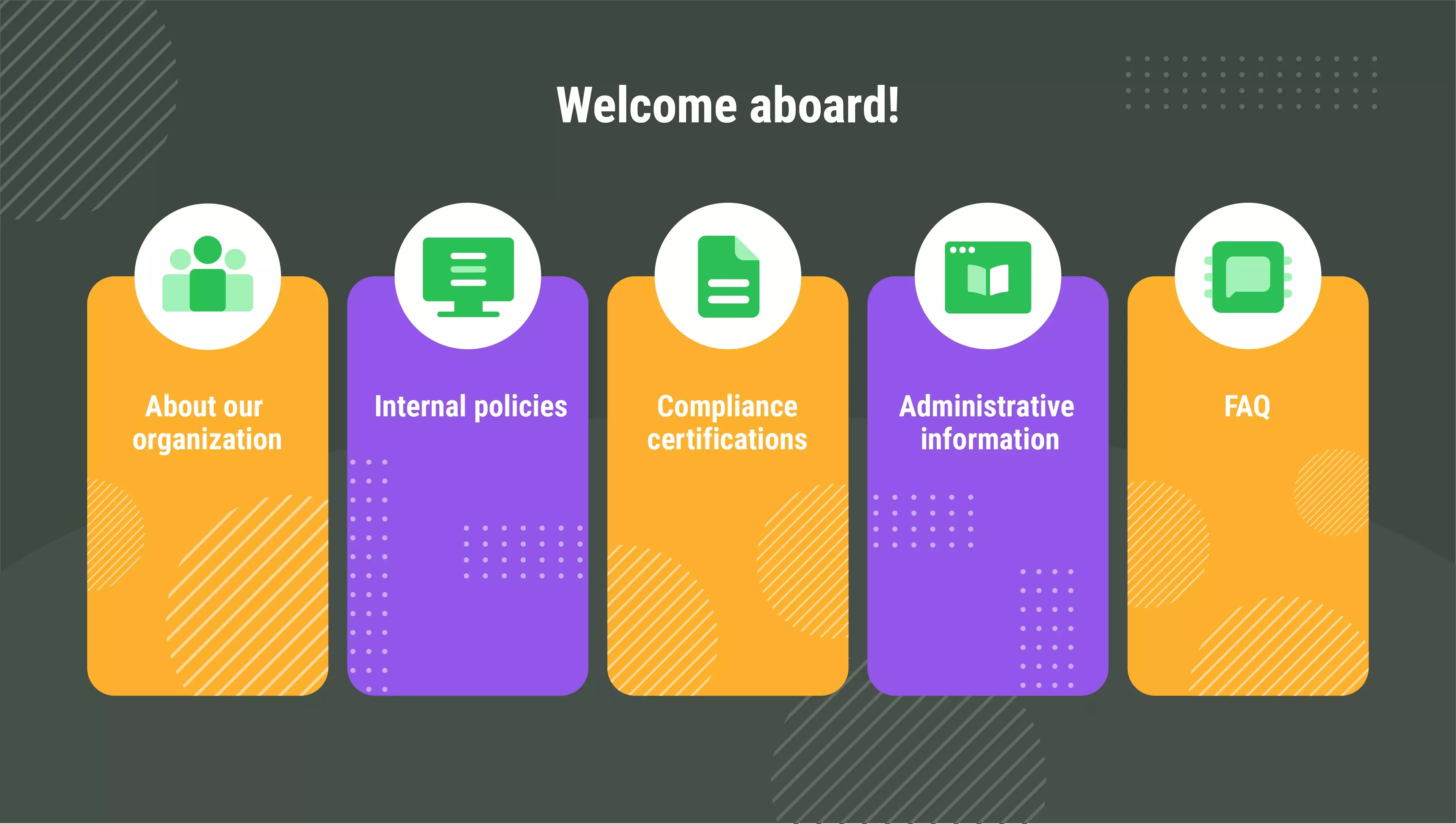E-Learning in the Banking and Finance Sector: Benefits and Use Cases
Table of contents
- How to Leverage E-Learning for Banking Employees?
- Product Training
- Gamified quiz about your banking product
- Compliance Training
- Cybersecurity test
- Sales Training
- Webinar with sales experts
- Onboarding
- Integrated policy attestation and library
- Technology Training
- Library with guidelines and demo videos
- Benefits of LMSs for Banks and Financial Institutions
The integration of learning management systems in the corporate environment has been increased, and the COVID-19 pandemic accelerated it. According to the recent statistics, by 2024, the global corporate LMS market size is expected to grow at a compound annual growth rate of 23%, with a revenue of $12.48 billion.
The banking and finance sector is not an exception, and in our article, we’ll show you how LMS can be beneficial for banks and financial institutions.
How to Leverage E-Learning for Banking Employees?
In this section, we’ll introduce five use cases for the banking and finance sector with examples of functionality you can implement in your learning management system.
Product Training
With regular releases of new products, banks and financial organizations should have substantial human resources that will know them well enough to be able to present and recommend to customers. An e-learning platform will assist your employees with training on new financial products and services, while for your organization, it’ll be easier to conduct regular assessments. The acquired skills will help your frontline employees consult customers with a customized approach to make the product or service serve their needs.
Gamified quiz about your banking product
If you need to test your staff on a new product or service, adding gamification features is a great way to engage the learners. In the example below, trainees are asked to answer several questions to collect badges once they complete each level. Winning badges will motivate learners to complete the test.

Compliance Training
The banking and finance industry is the sector where compliance with regulations matters more than in other industries. For this reason, the staff should be well-trained on different compliances, including lending compliance, deposit compliance, transaction compliance, Customer Information Security Awareness (CISA), etc. To make the training process more effective and engaging, the organizations should arrange training within e-learning platforms. The technical capabilities of LMS in banking and finance allow trainers to include various formats such as animation, simulation, gamification, microlearning, webinars, etc.
Cybersecurity test
To check how well your employees are prepared for working in accordance with cybersecurity and data privacy regulations, you can create a test with multiple answers. By integrating templates in your LMS, your training staff will create and update tests quickly.

Sales Training
Many banking roles require good sales skills. Your employees should be able to communicate with clients to improve customer experience and help your bank gain more sales wins. Banking and financial training is crucial as it ensures high standards of interpersonal communication of your employees with customers. By adding such training courses in your bank’s LMS, you’ll be able to improve the overall performance of your sales team.
Webinar with sales experts
By offering your employees to watch webinars with in-house or external experts, you will ensure interactive learning for your sales team. By leveraging the integration with video-link technologies, your employees can not only watch by taking an active part in the webinar.

Onboarding
Like in any business, banks and financial institutions introduce new employees and their working environment and professional duties. This process involves providing them with the basic information they need to be productive. When it comes to banks and financial institutions, the onboarding information would include operating procedures, policies, compliance regulations, information related to professional ethics, etc. Knowing all these aspects will contribute to faster onboarding of new employees. E-learning finance courses will let you systematize the knowledge base as well as organize training and assessment in a more engaging way.
Integrated policy attestation and library
The best scenario for beginners’ onboarding is providing them with all the information they need just in one place. You can also implement the attestation module if it suits your workflow.

Technology Training
This type of e-learning finance courses may be useful for training employees when you introduce new software and present corporate technologies to new employees while onboarding them. E-learning is especially efficient when they need to achieve a specific level of proficiency on software used in the organization.
Library with guidelines and demo videos
The best way to train employees on using software is giving them detailed guidelines or videos with technology specialists demonstrating the functionality. The opportunity to create a library and upload all the materials will serve your needs.

Benefits of LMSs for Banks and Financial Institutions
- Reduce costs on training banking staff. Hiring trainers, maintaining classrooms, and printing training materials may cost much for an organization. The cost factor especially matters when the organization scales — the more employees, the more trainers, classrooms, and materials are required. With LMSs, employees can educate themselves wherever they are, and this flexibility minimizes the training costs.
- Ensure better privacy and control over training activities. Most finance and banking training materials can’t be shared outside of the organization. With e-learning, finance and banking organizations can manage and secure the training process. Using cloud-based systems means accessing the training courses via VPN or a firewall, which makes the environment more secure.
- Adapt to dynamic industry changes. The cloud-based approach helps banking and finance employees quickly adapt to dynamic changes. If they rely only on printed materials, they may fail to stay competitive. It’s much easier to update online resources than books, and others.
- Gain insights into training effectiveness. Online learning software can send assessment results directly to bank’s managers, which gives them valuable data for making strategic decisions. For example, LMS analytics and reports can identify the areas where more emphasis on education is needed.
Having the expertise in the e-learning industry, Emerline assists its customers with designing and developing software for creating financial services training programs. We offer a wide range of e-learning development services, ranging from custom e-learning software development to integrating the solutions we build with client’s third-party systems. If you want to know more about Emerline’s expertise in building LMS for a banking sector, read the relevant case-study. Contact us if you are interested in any of the ideas mentioned in the article.
Published on May 18, 2023





